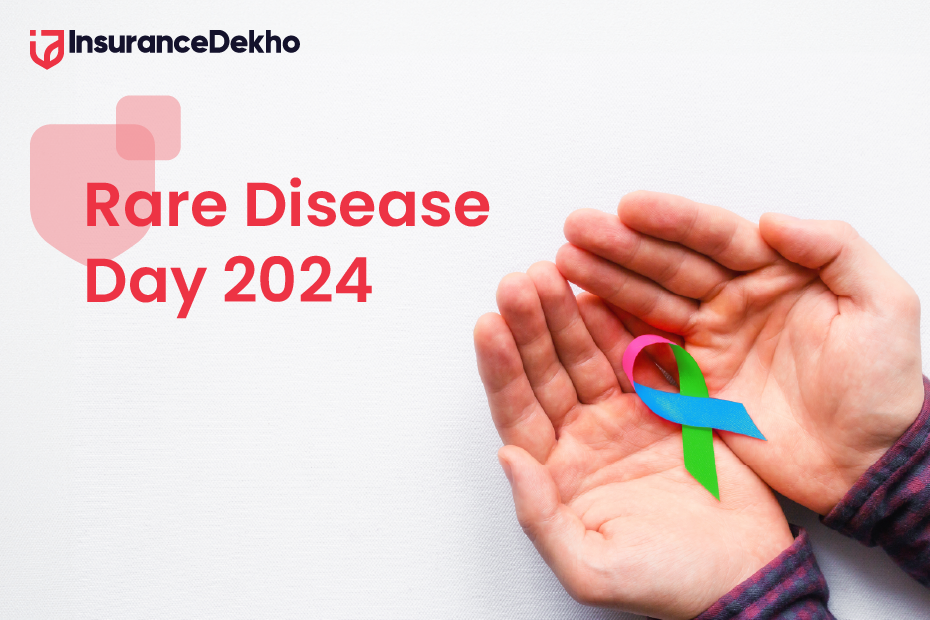Rare Disease Day 2024: Common Issues, Types & Causes
According to the World Health Organization, a disease is said to be a rare disease when it affects 1 person in every 1000 people [1]. The Ministry of Health and Family Welfare (MoHFW) India defines rare disease as a health condition that is usually uncommon and affects a small number of individuals in comparison to common diseases impacting the general population or is frequently heard of. It is estimated that there are close to 8000 rare diseases that exist globally, however, nearly 80% of all the patients having rare diseases are affected by approximately 350 of those rare diseases [2]. There is no specific definition for the term and this varies country to country. In some countries, rare diseases are such that they affect 1 in every 2000 people [3].
Table of Contents
In July 2017, MoHFW formulated a National Policy for Treatment of Rare Diseases (NPTRD) to implement and create policies for rare diseases in India. Rare diseases mostly include rare cancers, degenerative diseases, genetic diseases and infectious tropical diseases with 80% of these rare diseases being of genetic origin hence impacting more children than adults.
Issues and Challenges Related to Rare Diseases
The field of rare diseases is an ever-evolving one. Since the field is still at a nascent stage, the following are some common issues and challenges that are faced today by policymakers, doctors, healthcare professionals, researchers and others:
- Limited Research: There is limited research done in the field which creates major gaps and challenges in policymaking and in finding solutions for certain rare diseases.
- Multiple Definition: There are varying definitions used globally for rare diseases, this creates a cause of confusion among healthcare professionals, policymakers and researchers in denoting a disease as rare or common.
- Diverse Treatment: Due to varied definitions, even the treatment can be diverse, resulting in confusion and inconsistencies in accessing the right information.
- Lack of Diagnostics and Screening Capabilities: Diagnosis of a rare disease early on can be challenging since there is a lack of healthcare practitioners who are aware of these rare diseases, a lack of diagnostic and screening centres with capabilities to identify these diseases.
- Lack of Knowledge: Unavailability of treatment is also a major issue since medical professionals find it hard to identify due to lack of knowledge or background research.
- Cost of Treatment: The cost of treatment of rare diseases can vary significantly. To check whether or not your insurer covers rare diseases as a rider, make sure you check with them at the time of taking your policy.
- Unavailability of Medicines: Finding proper medicines for certain rare diseases also becomes difficult as it depends on whether the pharmaceutical companies develop those drugs or not.
- Public Health Priorities: In India, the above gaps and challenges are followed by the need to focus on bigger public health priorities with limited resources in hand.
List of Some Common Types of Rare Diseases in India
Here are some rare diseases that are found in India as per the Organization for Rare Diseases India [4]:
- Acanthocytosis Chorea: is a neurological disorder that can affect various parts of the body.
- Aplastic anaemia: is a serious blood condition that happens when the bone marrow is not able to make adequate new blood cells for our body to function properly.
- Biotinidase Deficiency: is a genetic disorder where the body cannot recycle biotin vitamins.
- Chronic Kidney Disease: is when there is progressive damage to the kidneys resulting in complete loss of function.
- Cystic Fibrosis: is a genetic condition affecting the cells, tissues and glands of the body that make mucus and sweat due to faulty protein.
- Haemangioma: is a growth made in your body due to extra blood vessels in the skin.
- Intestinal Cancer: is when cancer cells are formed in the tissue of the small intestine
- Lipid Storage Disease: is a disease when a group of inherited metabolic disorders accumulate in various tissues and cells in the body, mostly harmful amounts of fatty materials or lipids.
Causes of a Rare Disease
There is no said cause for getting a rare disease, however, the most common cause of getting a rare disease is that it can be genetic. [5] Some rare diseases can have multiple types of causes. For example: aplastic anaemia which is mostly inherited can also happen due to exposure to toxic chemicals like benzene or chloramphenicol, an infection like herpes virus or hepatitis, radiation or chemotherapy or due to the effects of another disease.
Prevention of Rare Diseases
There will be different approaches required to treat different forms of rare diseases. Some of the preventive methods are as follows:
- Complete immunisation of children must be done
- Regular flu shots should be taken
- Hand and body hygiene should be maintained
- Basic sanitation measures must be taken at all times
- Reduce exposure to toxins
You must have proper health insurance in place to combat diseases and have a sense of financial security at the time of need. Make sure to check with your insurer whether rare diseases are covered in your health insurance base policy or if there is a possibility to take a rider or add-on for rare diseases. To learn more about taking a health insurance policy you can call an InsuranceDekho advisor at +91-7551196989 or email us your query here: support@insurancedekho.com
References
- https://rarediseases.mohfw.gov.in//uploads/Content/1624967837_Final-NPRD-2021.pdf
- https://main.mohfw.gov.in/sites/default/files/Rare%20Diseases%20Policy%20FINAL.pdf
- https://www.rarediseaseday.org/what-is-rare-disease-day/
- https://ordindia.in/about-rd/rare-disease-in-india/
- https://www.ncbi.nlm.nih.gov/books/NBK56184/



















































